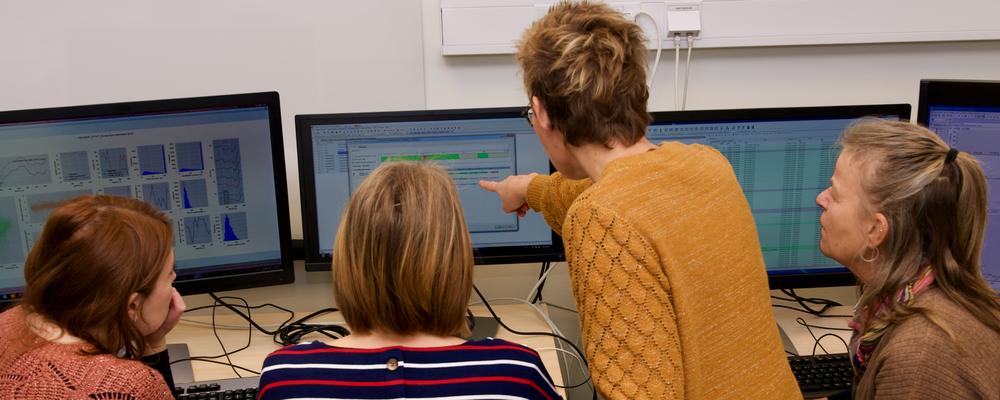
PhD Course in Proteomics
The Proteomics Core Facility course includes basic theory as well as practical applications.
Proteomics
| Credits (HP): | 3,0 |
| Code (s): | SC00003 |
| Weeks (s): | 39-40 (exam 41) |
Course description
This full-time course provides a comprehensive introduction to proteomics within two weeks, emphasizing its applications and the methodologies employed in proteomics research. Key topics include study design, sample handling, preparation techniques, and strategies for protein and peptide enrichment and separation. The course also introduces the basic theory of biological mass spectrometry (MS), liquid chromatography (LC)-MS instrumentation, and the analysis and bioinformatic evaluation of MS data.
The learning experience integrates lectures, instrument demonstrations, workshops, and hands-on laboratory experiments. Throughout the course, students will design and plan a proteomics study tailored to their own research interests. These individual projects will be presented in the week after the course (wk41) and critically discussed with teachers and other students, fostering feedback, collaboration, and practical application of the course concepts.
Learning outcomes
The objective of the course is to present current trends in proteomics and to demonstrate the principles and capabilities of proteomic strategies to answer various research questions. After the course the students will have an overview of proteomic applications and workflows, from study design and planning of the experiments to analysis and evaluation of results.
The following basic topics on proteomics will be covered:
- Introduction to proteomics
- Sample handling and preparation
- Separation techniques and strategies
- Mass spectrometry theory
- Quantitative mass spectrometry
- Characterization of post-translational modifications
- Database matching and proteomic tools
- Experimental design and interpretation of quantitative proteomic results
- Evaluation of the quality of proteomic workflows in published literature